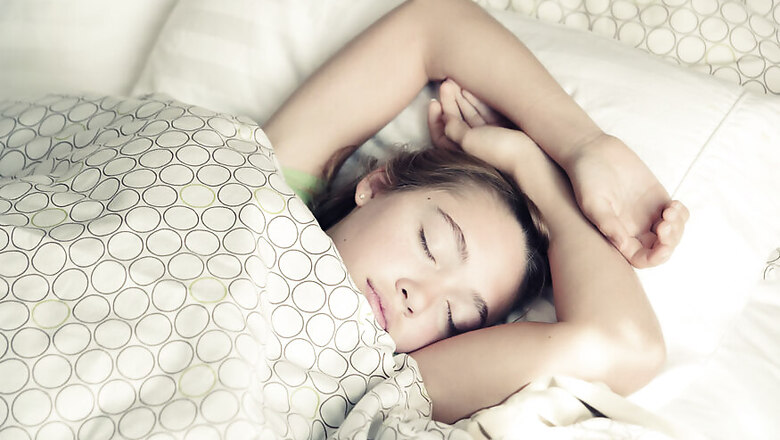
views
If you think your teenage son or daughter is lazing around in bed too much, well science could actually be on their side. New US research has found that some teens do indeed need more sleep than others, and most should be getting around eight to ten hours of shut-eye each night.
Carried out by UCLA, the study set out to investigate the question of whether teens need more -- or perhaps less -- sleep than others to be mentally at their best.
Led by UCLA researcher Andrew Fuligni, Fuligni's previous work has already suggested that the amount of sleep we need for optimal mental health and optimal academic performance may differ.
For his new research Fuligni recruited 419 Los Angeles ninth- and 10th-graders and followed them for a 14-day period.
To see how sleep affected the teens' moods the next day, the subjects were asked to complete three-page daily checklists before going to bed and answer questions about the previous night's sleep and the current day's mood.
To help improve accurate self-reporting the teens folded and sealed each day's checklist, stamping the seal with an electronic time stamp, and were offered movie tickets for properly completing their tasks.
The team found that there are differences among teens in how much sleep they need to maintain the best daily mood, with the results showing that sleep had the most positive effect on younger adolescents and those who reported more frequent anxiety or depression symptoms such as crying, worrying and fatigue.
Subjects in these two groups experienced their best next-day moods after getting more sleep the night before, compared to older youths and those with fewer symptoms, suggesting that these teens may need extra hours of sleep to reach peak mental functioning.
However, both too little and too much sleep was associated with elevated levels of daily distress. Although few teens functioned well on less than seven hours of sleep a night, the team also found that for the majority, more than 11 hours a sleep a night was also not beneficial.
Fuligni concluded that, "As a society, we underestimate how much sleep kids -- particularly teenagers -- need. There's a lot of pressure on them to sleep less, and some youth are sacrificing sleep for things like school and other activities."
He now believes that further research would be beneficial to look at individual sleep needs for different aspects of health and performance.
The findings can be found in the Journal of Clinical Child and Adolescent Psychology.



















Comments
0 comment